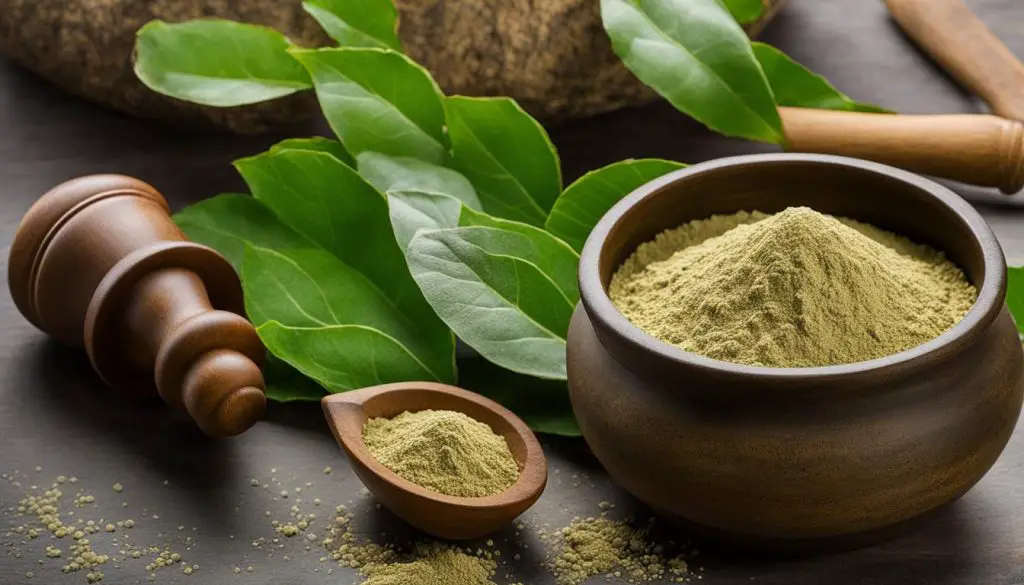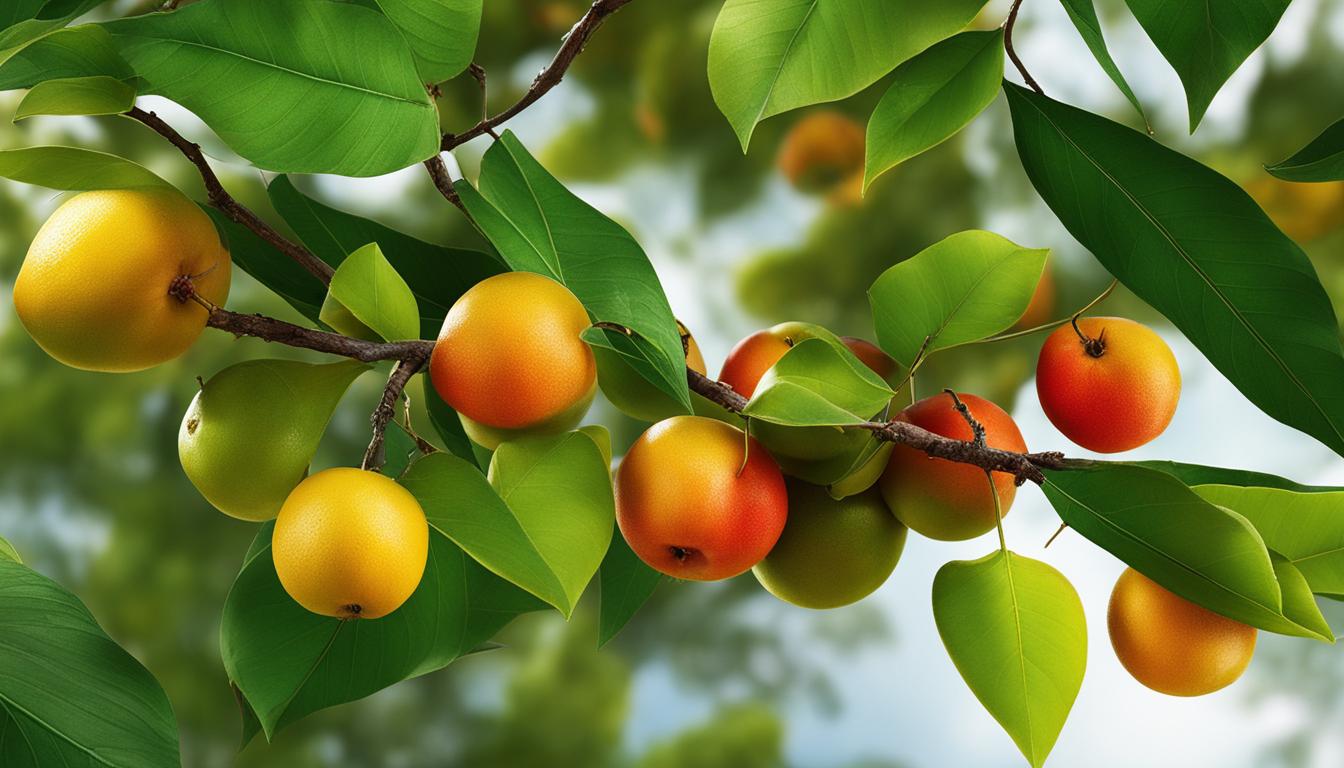The bilva tree, also known as the bael tree or bel tree, is considered a sacred plant in Hinduism. It holds significant spiritual and medicinal importance, as mentioned in ancient Indian literature dating back to the Vedic period. Placing a bael plant in the living room near a window is believed to bring prosperity and stability to the home. The trifoliate leaf of the bael tree is symbolic of Lord Shiva’s three functions – creation, preservation, and destruction – and his three eyes. It is said that planting bael trees around the home or temple is equivalent to worshiping a Linga with bilva leaves and water. The tree is also revered in Jainism, as the 23rd Tirthankara attained enlightenment under a bael tree. Offering a bael plant as a gift or planting it near a temple is considered auspicious. Moreover, the extract of bael leaf has medicinal value, as it can help control cholesterol levels in the blood.
Contents
- 1 Belief in Good Luck and Auspiciousness with Bilva Tree
- 2 Benefits of Having a Bilva Tree at Home
- 3 Significance of Bilva Tree in Religious Practices
- 4 Medicinal Uses and Health Benefits of Bilva Tree
- 5 Conclusion
- 6 FAQ
- 6.1 Is it good luck to have a bilva tree at home?
- 6.2 What is the significance of the bilva tree at home?
- 6.3 Why is the bilva tree considered auspicious?
- 6.4 What are the benefits of having a bilva tree at home?
- 6.5 How is the bilva tree significant in religious practices?
- 6.6 What are the medicinal uses and health benefits of the bilva tree?
- 7 Source Links
Key Takeaways:
- The bilva tree is a sacred plant in Hinduism and is believed to bring prosperity and stability to the home when placed in the living room near a window.
- The trifoliate leaf of the bilva tree symbolizes Lord Shiva’s three functions and is considered equivalent to worshiping a Linga with bilva leaves and water.
- The bilva tree is also revered in Jainism, and planting it near a temple or offering it as a gift is considered auspicious.
- The extract of bilva leaf has medicinal value and can help control cholesterol levels in the blood.
Belief in Good Luck and Auspiciousness with Bilva Tree
The belief in the good luck and auspiciousness associated with the bilva tree is deeply ingrained in Hindu traditions and rituals. Placing a bilva tree in your home is believed to invite positive energy and blessings. The trifoliate shape of the bilva leaf symbolizes the three eyes of Lord Shiva and is associated with the divine Trinity of Brahma, Vishnu, and Mahesh. Offering bilva leaves to Lord Shiva is considered highly auspicious and is believed to bring good fortune and fulfillment of desires.
“The presence of a bilva tree in the home is believed to create a positive and auspicious atmosphere, attracting spiritual energy and blessings.”
The spiritual significance of the bilva tree extends beyond Hinduism. In Jainism, the 23rd Tirthankara, Parshavnath, achieved enlightenment under a bael tree, reinforcing its sacredness. The belief in the auspiciousness of the bilva tree is not only limited to rituals but also extends to everyday life. The presence of a bilva tree in your home is believed to attract prosperity, abundance, and positive energy, creating a harmonious environment.
The Spiritual Significance of Bilva Tree:
- Symbolizes the three eyes of Lord Shiva and the divine Trinity
- Offers spiritual energy and blessings
- Associated with enlightenment in Jainism
- Attracts prosperity and abundance
Embrace the belief in the good luck and auspiciousness of the bilva tree by incorporating it into your home. Create a sacred space that radiates positive energy and invites blessings into your life.
| Beliefs and Customs | Benefits |
|---|---|
| Offering bilva leaves to Lord Shiva | Invokes blessings and fulfillment of desires |
| Presence of bilva tree in home | Creates positive and auspicious atmosphere |
| Planting bilva trees around home or temple | Equivalent to worshiping a linga with bilva leaves and water |
| Offering bilva plant as a gift | Considered auspicious |
Open your heart and home to the positive energy and blessings that the bilva tree brings. Embrace the belief in good luck and auspiciousness, and watch as your life becomes filled with prosperity and positive vibrations.
Benefits of Having a Bilva Tree at Home
Having a bilva tree at home can bring numerous benefits and enhance the overall energy of your living space. The bilva tree is considered a lucky charm, known to attract prosperity and positive energy. It creates a harmonious atmosphere that promotes well-being, peace, and abundance.
The presence of a bilva tree is believed to ward off negative influences and purify the environment, both spiritually and physically. Its sacredness and symbolic significance make it a powerful addition to any home. The trifoliate shape of the bilva leaf represents the divine Trinity, and its offering to Lord Shiva is considered highly auspicious.
Furthermore, the medicinal properties of the bilva tree contribute to the well-being of the residents. The extract from the bilva leaves has therapeutic benefits, such as controlling cholesterol levels and promoting heart health. The fruit of the bilva tree is packed with essential vitamins and minerals that support overall health and aid in digestion. It also possesses antimicrobial properties and can be used in the treatment of various skin conditions.
By incorporating a bilva tree into your home, you invite positive energy, prosperity, and good luck. Its spiritual significance, combined with its health benefits, make it a valuable addition to your living space.
Significance of Bilva Tree in Religious Practices
The bilva tree holds immense spiritual significance in various religious practices. It is deeply revered and considered an essential element in the worship of Lord Shiva. Offering bilva leaves to the Shiva Linga is believed to be highly auspicious and is considered a way to please Lord Shiva and seek his blessings. The bilva leaf is symbolic of the three eyes of Lord Shiva and represents the divine Trinity of Brahma, Vishnu, and Mahesh. Worshiping the bilva tree or offering its leaves is seen as an act of surrendering one’s ego and negative qualities, allowing for spiritual growth and transformation.
In religious ceremonies, the presence of a bilva tree creates a sacred atmosphere and enhances the spiritual ambiance. The leaves of the bilva tree are often used in the preparation of holy water, which is used during prayers and rituals. The act of offering bilva leaves is believed to invite divine blessings and create a connection with the divine. It is considered an act of devotion and reverence towards Lord Shiva and is believed to bring spiritual upliftment.
Worshiping the bilva tree or offering its leaves is seen as an act of surrendering one’s ego and negative qualities, allowing for spiritual growth and transformation.
The significance of the bilva tree extends beyond Hinduism, as it is also considered sacred in Jainism. The 23rd Tirthankara, Parshavantha, is believed to have attained enlightenment under a bael tree, further highlighting its spiritual importance. The bilva tree holds a special place in religious practices and is a symbol of devotion and reverence towards the divine.
| Religion | Significance of Bilva Tree |
|---|---|
| Hinduism | Considered essential in worshiping Lord Shiva, offering bilva leaves is believed to please Lord Shiva and invite divine blessings. |
| Jainism | Believed to be associated with enlightenment, as the 23rd Tirthankara achieved enlightenment under a bael tree. |
The spiritual practices and rituals associated with the bilva tree highlight the deep-rooted belief in its divine significance. It is a powerful symbol of devotion, surrender, and connection with the divine in various religious traditions.
Medicinal Uses and Health Benefits of Bilva Tree
The bilva tree, also known as the bael tree or bel tree, is not just revered for its spiritual significance, but it also offers a wide range of medicinal uses and health benefits. The leaves of the bilva tree are particularly known for their therapeutic properties and are used in traditional medicine for various purposes.
The extract of bilva leaves has been found to have cholesterol-lowering effects and can contribute to heart health. It aids in controlling cholesterol levels in the blood, thereby reducing the risk of cardiovascular diseases. The leaves are also beneficial for respiratory disorders like cold and asthma. The oil extracted from the leaves can be used to relieve congestion and improve breathing.
In addition, the fruit of the bilva tree is rich in essential vitamins and minerals. It is a good source of Vitamin C, calcium, and potassium, which are important for overall health. Consuming bilva fruit can help boost the immune system, regulate blood sugar levels, and promote healthy digestion. It is also known for its antimicrobial properties, making it effective in fighting off infections.
| Medicinal Uses | Health Benefits |
|---|---|
| Control cholesterol levels | Aids in digestion |
| Relieve respiratory disorders | Regulates blood sugar levels |
| Promote heart health | Boosts the immune system |
| Treat skin conditions | Has antimicrobial properties |
The leaves of the bilva tree are also used externally to treat various skin conditions. They can be applied topically to relieve rashes, itching, and excessive perspiration. The cooling properties of the leaves can soothe the skin and provide relief from discomfort.
In conclusion, the bilva tree is not only a symbol of spirituality but also a valuable source of medicinal benefits. Its leaves and fruit offer therapeutic properties that contribute to heart health, respiratory well-being, immune support, and overall wellness. Incorporating bilva leaves and fruit into your diet and skincare routine can help harness the health benefits of this sacred tree.

Conclusion
The bilva tree holds immense spiritual and cultural significance, making it a prized addition to any home. Believed to bring good luck, prosperity, and positive energy, this sacred plant is revered in both Hinduism and Jainism. Its association with Lord Shiva and symbolic representation of the divine Trinity adds to its sacredness and appeal.
Deeply rooted in traditions and rituals, the belief in the auspiciousness of the bilva tree is upheld through the offering of its leaves, which is considered highly auspicious. By having a bilva tree at home, you can create a positive and harmonious environment that attracts blessings and promotes overall well-being.
But the benefits of the bilva tree go beyond its spiritual significance. It is also valued for its numerous health benefits and medicinal uses. Whether used to control cholesterol levels, treat respiratory disorders, or enhance digestion, the bilva tree offers a natural and holistic approach to maintaining good health.
In conclusion, incorporating a bilva tree into your home brings not only spiritual blessings but also physical well-being. Embrace the positive energy, prosperity, and cultural richness that this sacred plant brings, and enjoy the many advantages it offers for you and your family.
FAQ
Is it good luck to have a bilva tree at home?
Yes, having a bilva tree at home is considered a symbol of good luck and is believed to attract prosperity and abundance to the household.
What is the significance of the bilva tree at home?
The bilva tree is believed to create a positive energy field that promotes well-being, peace, and harmony in the home. It is also said to ward off evil and negative influences.
Why is the bilva tree considered auspicious?
The bilva tree is considered auspicious due to its association with Lord Shiva and its representation of the divine Trinity. Offering bilva leaves is believed to please Lord Shiva and invite divine blessings.
What are the benefits of having a bilva tree at home?
Having a bilva tree at home is believed to attract positive energies, promote well-being, and create a sacred and auspicious atmosphere. It is also said to purify the environment and promote overall health and harmony.
How is the bilva tree significant in religious practices?
The bilva tree is considered essential in the worship of Lord Shiva. Offering bilva leaves to the Shiva Linga is believed to please Lord Shiva and invite divine blessings. The presence of a bilva tree during religious ceremonies enhances the spiritual ambiance.
What are the medicinal uses and health benefits of the bilva tree?
The bilva tree has therapeutic properties and is used in traditional medicine. The extract of bilva leaves can be used to control cholesterol levels and promote heart health. It is also beneficial for respiratory disorders and aids in digestion. The fruit is rich in vitamins and minerals, contributing to overall health.








